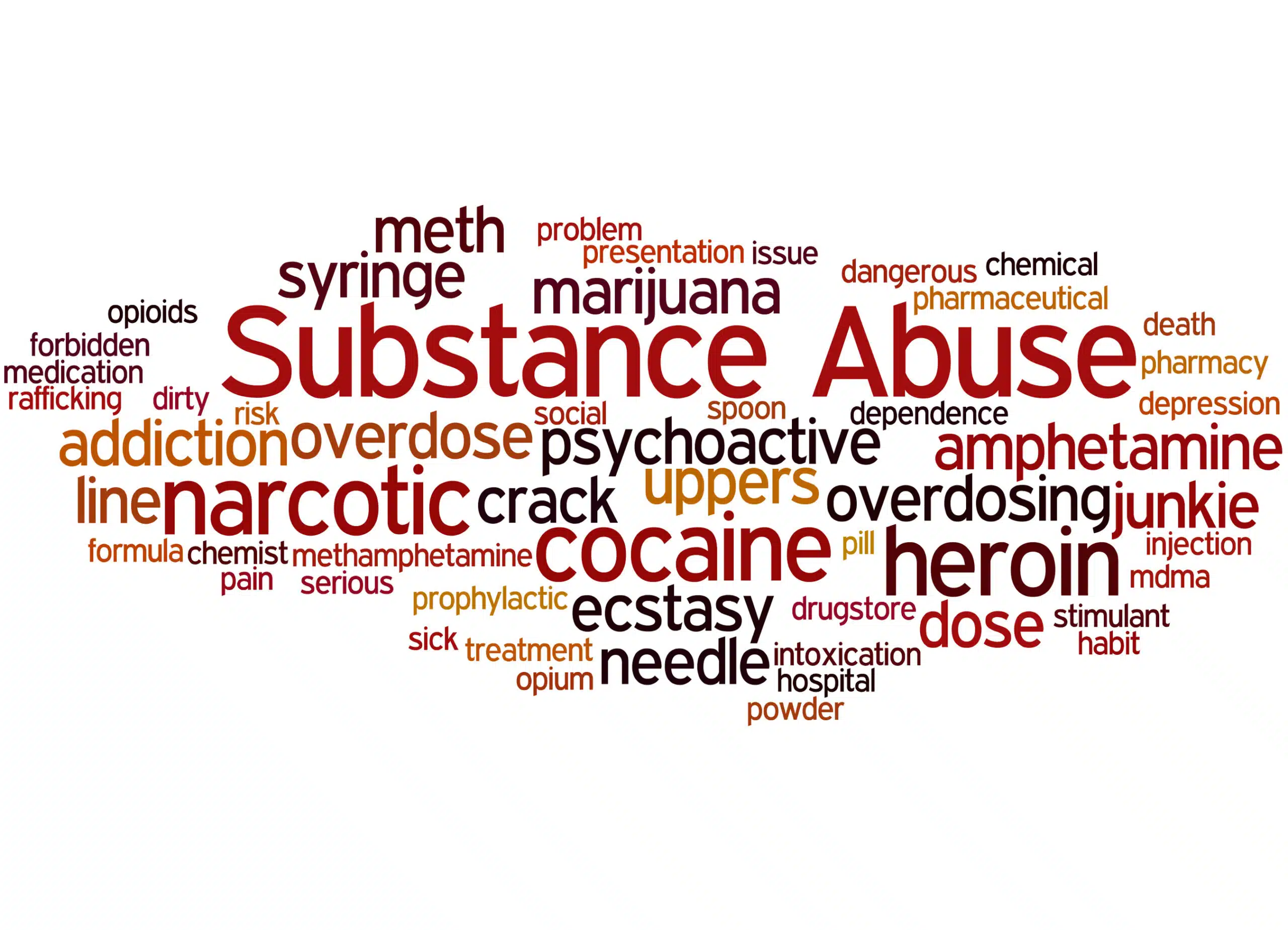
Searching for impactful research topics on substance abuse? This article offers a detailed list of the most relevant and current topics for 2024. From mental health and adolescent drug abuse to societal impacts and emerging trends, each section will give you valuable insights and directions for your research.
Dive in to find the perfect topic for your next project.
Key Takeaways
- Research on substance abuse emphasizes the importance of integrated treatment approaches addressing both mental health and addiction issues.
- Community-based prevention programs and factors like family dynamics are crucial in addressing adolescent substance abuse effectively.
- Emerging trends in technology and policy changes are shaping innovative treatment methods and enhancing access to recovery support for individuals with substance use disorder.
Top Research Topics on Substance Abuse
As drug addiction research gains relevance, students and researchers are exploring a multitude of topics to better understand this complex issue. The Butler Center, among other institutions, has been at the forefront of studying the causes of addiction and the effectiveness of various treatment methods.
These studies help clinicians improve diagnosis and treatment, ultimately enhancing the quality of addiction services.
Encompassing over 60 recommended topics, research on alcohol and substance abuse refers to various forms such as drug and alcohol addiction, poly substance abuse, drug and alcohol abuse, drug and substance abuse, and the impact of illicit drugs.
Research in these areas can lead to the development of more effective strategies to combat substance abuse disorders.
Mental Health and Substance Use Disorders
Many individuals experience both mental health issues and substance use disorder a systematic simultaneously, a well-documented connection. This co-occurrence complicates treatment strategies, requiring a comprehensive approach that addresses both mental illness and substance abuse.
Addiction, like other chronic diseases, can be managed effectively, albeit not cured, through ongoing treatment and support.
Research on substance abuse treatment aims to inform practitioners and enhance addiction services through integrated data from case studies and white papers.
This evidence-based approach helps in developing better treatment methodologies that cater to the complex needs of those with substance use disorder.
Adolescent Drug Abuse: Causes and Prevention
Adolescent drug abuse is influenced by several risk factors, including peer pressure and family dynamics. The rise of social media has further complicated this issue, as these platforms often promote substance use behaviors among young adults.
The normalization of drug use on social media can significantly impact youth drug abuse behaviors, making prevention efforts more challenging.
Community-based prevention programs have proven to be effective in reducing substance misuse rates among at-risk populations. Focusing on education and early intervention, these programs aim to mitigate factors leading to teenage drug abuse and promote healthier lifestyles for young people.
The Role of Family Dynamics in Substance Abuse
Family relationships significantly influence the onset and recovery from substance abuse. Dysfunctional family dynamics, such as domestic violence and lack of support, can increase the risk of substance use disorder.
Conversely, strong family support can significantly enhance the effectiveness of treatment and recovery efforts.
Substance abuse has far-reaching effects on community safety and health systems, often overwhelming these resources. Effective relapse prevention often involves ongoing family and community support, underscoring the importance of a supportive environment in recovery.
Find Hope and Healing: Call Us Now!
Take the first step towards a brighter future! If you or a loved one is seeking support for substance abuse, we are here to help. Call us today and let our dedicated team guide you to the right treatment options. Your path to recovery starts now!
- Connect with an expert addiction specialist 24/7/365
- Learn about treatment costs
- Arrange fast access to a treatment program
Request a Call
OR
Make a Call
Substance Abuse Treatment and Recovery Research

Research in substance abuse treatment and recovery continues to evolve, with innovative collaborations between probation officers and community health providers enhancing care access for individuals struggling with substance use.
Case studies and white papers are instrumental in improving service quality and delivery.
We explore evidence-based treatment methods, holistic approaches, and strategies for long-term recovery and relapse prevention. Each approach offers unique insights into the multifaceted nature of addiction treatment.
Evidence-Based Treatment Methods
Grounded in extensive research demonstrating their efficacy, evidence-based treatment methods are increasingly utilized.
Medication-assisted treatment, particularly for opioid addiction, combines pharmacological interventions with behavioral therapies to improve outcomes in drug addiction treatment.
Recent advancements focus on reducing withdrawal symptoms and cravings without adverse effects, making these treatments more accessible and effective.
Telehealth has also emerged as a significant method in delivering substance abuse treatment, improving access for many individuals. Innovations aim to integrate technology for better addiction recovery outcomes, reflecting a growing acceptance of evidence-based practices.
Holistic Approaches to Addiction Treatment
Holistic treatment approaches combine various therapies to address mental, physical, and spiritual health in addiction recovery. Alternative therapies, such as yoga, nutritional therapy, and acupuncture, are increasingly recognized for their role in managing addiction and improving recovery outcomes.
Mindfulness practices and yoga are being explored as beneficial adjuncts to traditional treatment for substance use disorder. These practices aid individuals in developing coping strategies and enhancing overall well-being, supporting long-term recovery.
Long-Term Recovery and Relapse Prevention
Relapse is a common part of the recovery journey and should be viewed as an opportunity to adjust treatment rather than a failure. Successful public health initiatives typically combine education, treatment access, and community support to reduce substance abuse.
Community-based programs that integrate education, marketing efforts, and support systems are effective in reducing substance abuse and preventing relapse.
Financial incentives for maintaining sobriety, such as those implemented in states like California and Washington, are also gaining traction as effective strategies.
Societal Impacts of Substance Abuse

Substance abuse imposes a substantial economic burden on healthcare systems and affects various sectors of society. The financial toll, which includes healthcare costs, lost productivity, and criminal justice expenses, is staggering.
This section explores the economic consequences, the link between substance abuse and crime, and public health strategies for prevention.
Economic Consequences of Drug Abuse
The societal costs of substance abuse can reach over $532 billion annually, impacting healthcare, law enforcement, and overall economic growth. Government expenses related to substance abuse include costs for healthcare, social services, and criminal justice.
Additionally, the loss of economic input and productivity due to substance abuse affects workplace efficiency and community well-being.
Patterns of substance abuse are closely linked to higher rates of violent and property crimes in communities, further straining public resources. Addressing these economic consequences requires a comprehensive approach involving treatment, prevention, and policy changes.
Substance Abuse and Crime
Individuals with substance use disorder are responsible for approximately half of all crimes committed. There is a significant correlation between substance abuse and crime rates, with drug abuse among drug trafficking contributing to various forms of criminal activity.
Drug trafficking increases criminal activities and affects citizen security, highlighting the need for targeted interventions to reduce these negative impacts.
Substance misuse significantly affects public safety, contributing to motor vehicle accidents, injuries, and deaths. Effective strategies to address substance abuse and crime include comprehensive treatment programs and policies that focus on reducing drug trafficking and supporting affected individuals.
Public Health Strategies for Substance Abuse Prevention
Recent policy changes aim to reduce the stigma associated with substance use disorder, facilitating better access to treatment. Public health initiatives often involve implementing policy changes to address key issues and enhance treatment access.
Evaluating these policies is crucial for developing strategies to reduce substance abuse and improve public health outcomes.
Community-based prevention programs that focus on education, early intervention, and support systems are essential components of public health strategies. These programs mitigate factors leading to substance abuse and promote healthier lifestyles, reducing the societal impact of addiction.
Find Hope and Healing: Call Us Now!
Take the first step towards a brighter future! If you or a loved one is seeking support for substance abuse, we are here to help. Call us today and let our dedicated team guide you to the right treatment options. Your path to recovery starts now!
- Connect with an expert addiction specialist 24/7/365
- Learn about treatment costs
- Arrange fast access to a treatment program
Request a Call
OR
Make a Call
Special Populations and Substance Abuse
Substance abuse within special populations requires a nuanced understanding of demographic-specific risks and protective factors.
We explore the unique challenges faced by older adults, gender differences in substance abuse, and higher rates of substance abuse in marginalized communities.
Substance Abuse Among Older Adults
Older adults face unique challenges related to substance abuse, including:
- Greater susceptibility to physical health issues
- Co-occurring disorders
- Isolation
- Chronic pain
- Mental health issues
These factors are significant risk factors for substance use disorder in the elderly, contributing to increased vulnerability and complications in managing their conditions.
Age-sensitive treatment approaches must address the unique physical, cognitive, and emotional needs of older adults. Tailored interventions are crucial for effectively addressing substance use treatment needs in older adults.
Gender Differences in Substance Abuse
Research indicates that men are generally more likely to engage in substance abuse compared to women, which influences treatment approaches. Women, however, tend to progress from initial substance use to dependence more rapidly than men, requiring different intervention strategies.
Understanding these gender differences is key to developing effective treatment programs catering to the specific needs of men and women. Tailoring treatment approaches to address these differences can improve outcomes and support long-term recovery.
Substance Abuse in Marginalized Communities
Substance abuse rates are higher in marginalized communities due to factors such as socioeconomic instability, limited access to healthcare, and systemic discrimination.
These communities often face additional challenges, including higher rates of homelessness and housing instability, which further link them to criminal behavior.
Addressing substance abuse in marginalized communities requires targeted interventions that consider these unique challenges. Access to healthcare, support services, and community-based programs can mitigate factors leading to substance abuse and promote recovery.
Emerging Trends and Future Directions
Emerging trends in substance abuse highlight the need for ongoing research and innovative approaches to treatment. Collaborations between organizations like the Hazelden Betty Ford Foundation and the University of Maryland demonstrate the importance of partnerships in understanding substance use.
We examine the impact of technology, innovations in treatment, and the effects of policy changes on substance abuse.
Impact of Technology on Substance Abuse
Social media platforms often contribute to normalizing substance use behaviors, influencing how users, especially adolescents and young adults, perceive and engage with drugs and alcohol.
Online communities and forums can either promote substance use or provide support networks for recovery, illustrating the dual influence of digital platforms.
Telehealth services and emerging technologies, like apps for monitoring substance use and virtual support groups, are paving the way for more personalized and effective treatments. These innovations enhance accessibility and support for individuals seeking help with substance abuse.
Innovations in Substance Abuse Treatment
Recent advancements in substance abuse treatment methodologies focus on pharmacogenomics, enabling tailored therapies based on individual genetic profiles.
Innovative behavioral interventions, like contingency management and workplace programs, have shown promising outcomes in improving treatment adherence.
Online therapeutic communities and holistic approaches, including mindfulness practices and yoga, are increasingly integrated into treatment plans, addressing both physical and mental health aspects. These innovations provide new avenues for improving recovery outcomes and supporting long-term sobriety.
Policy Changes and Their Effects on Substance Abuse
Recent policy changes aim to reduce substance abuse through stricter regulations on prescription opioids and increased funding for evidence-based treatment programs.
These policies aim to mitigate risks associated with substance use and improve access to effective treatment options. States that have implemented comprehensive addiction policies have shown a decrease in overdose rates, suggesting the effectiveness of these approaches.
Harm reduction strategies, such as needle exchange programs and supervised consumption sites, are also being evaluated for their impact on substance abuse trends.
Providing safer options for substance use and reducing the spread of infectious diseases, these strategies play a crucial role in public health efforts to combat addiction.
Summary
In summary, the landscape of substance abuse research is vast and multifaceted. From understanding the complex relationship between mental health and substance use disorder to exploring the unique challenges faced by special populations, the need for diverse and targeted research is evident.
Effective treatment and prevention strategies must incorporate evidence-based practices, holistic approaches, and community support to address the various dimensions of addiction.
As we look to the future, ongoing research and innovation are essential in developing more effective interventions and policies. By continuing to explore new trends and treatment methodologies, we can better support individuals struggling with substance abuse and work towards a healthier society.
Let this guide inspire you to delve deeper into the field of substance abuse research and contribute to the ongoing efforts to combat this pervasive issue.
Find Hope and Healing: Call Us Now!
Take the first step towards a brighter future! If you or a loved one is seeking support for substance abuse, we are here to help. Call us today and let our dedicated team guide you to the right treatment options. Your path to recovery starts now!
- Connect with an expert addiction specialist 24/7/365
- Learn about treatment costs
- Arrange fast access to a treatment program
Request a Call
OR
Make a Call
Frequently Asked Questions
What are the main factors contributing to adolescent drug abuse?
How do family dynamics influence substance abuse?
Prioritizing healthy family interactions can be key to preventing and addressing substance use issues.
What are some effective evidence-based treatment methods for substance abuse?
Prioritizing these methods can lead to significantly better recovery rates.
How does technology impact substance abuse and its treatment?
What role do public health strategies play in substance abuse prevention?
These efforts collectively enhance prevention and support healthier communities.
Our helpline is 100%
free & confidential
If you or someone you care about is struggling with drug or alcohol addiction, we can help you explore your recovery options. Don’t face this challenge alone—seek support from us.
Programs
Resources
Will my insurance
cover addiction
treatment?
We're ready to help
Find the best
drug or alcohol treatment
center
Are you or a loved one struggling with addiction? Call today to speak to a treatment expert.












